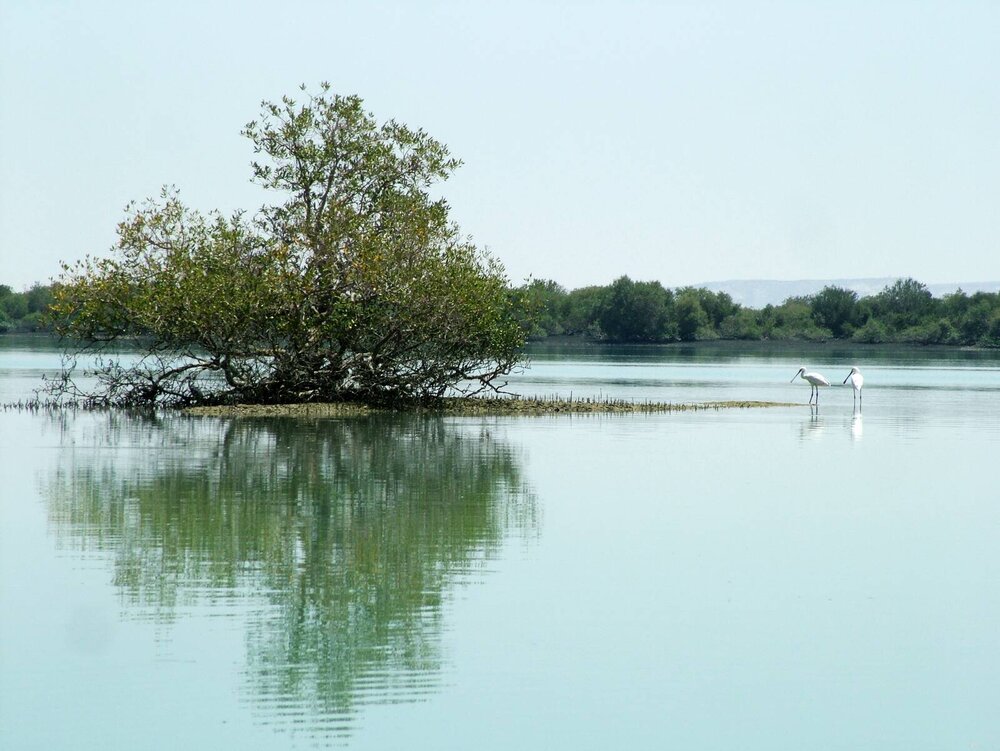Mangrove forests at serious risk of disappearing, loss of species

TEHRAN – Although the existing laws prohibit any destruction and pollution of the wetlands and forests, the mangrove ecosystems in southern Iran are in serious danger due to the construction of roads and shrimp farming sites.
Mangroves are ecosystems that are unique in terms of biodiversity and high production rates with ecological and socio-economic value. These forests, with atmospheric carbon stabilization, play an important role in controlling global climate change.
In this way, the destruction of mangroves liberates a significant amount of carbon storage, which can worsen global warming and other effects of climate change. The most important consequences of climate change on the coast and its ecosystems are temperature rise, change in precipitation, and sea-level rise.
Iranian mangrove forests occur in the north part of the Persian Gulf and Oman Sea. The areas of Iranian mangrove forests are almost 10,700 hectares which a maximum area of 67.5 km between Khamir Port and northwest of Qeshm Island, and a minimum area of 0.01 km in Bardestan estuary.
Only two species of mangrove include Avicennia marina from Avicenniaceae and Rhizophora macrunata from Rhizophoraceae are found in the Persian Gulf. A. marina species is the dominant species in these forests and Rh. macrunata species just is found in the Sirik region. Overexploitation of mangrove leaves and oil pollution are the main destruction factors in this region.
Now, mangrove forests in the Khor Bardestan wetland of Bushehr province are in serious danger due to road construction and shrimp farming site.
Environmentalists are concerned that the migratory birds will migrate out of the area forever. And the pollution will lead to the gradual death of the mangrove forests and the aquatic species.
If freshwater does not reach the forests, this ecosystem and its biodiversity will be seriously endangered.
Masoud Baqerzadeh Karimi, the director-general of aquatic ecosystems at the Department of Environment (DOE) said road construction and the shrimp farming site could have a negative impact on the Khorbardestan Dayyer wetland and its forests.
According to Article one of the law on preservation and rehabilitation of wetlands, any destruction or pollution of the wetland is prohibited. So that, any construction around the wetland should be stopped to prevent any possible danger, he said, ISNA reported on Monday.
FB/
